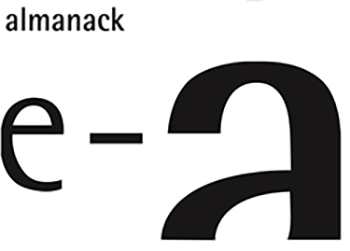Abstract
Based on baptismal records from Luanda’s Parish of Nossa Senhora Conceição, this paper analyzes urban slavery in Angola’s main slave port in the late eighteenth century. Against the backdrop of the transatlantic slave trade, we argue that baptism and godparenting ties served as strategies for African women to evade deportation to Brazil through the slave trade. Baptism and the use of Christian names set Luanda’s enslaved population apart from enslaved Africans shipped abroad, who were neither baptized nor received Christian names because they were destined for the Atlantic slave trade. Naming patterns reveal a hierarchy within the system of slavery, as demonstrated by baptism and godparenting records, which (re)defined judicial and social statuses in Luanda and differentiated free people from freed and enslaved Africans. As this article demonstrates, Christianity, slavery and the Atlantic slave trade were intimately connected in Luanda.
Keywords:
Baptism; godparenting; slavery; freedom; Luanda

 Thumbnail
Thumbnail
 Thumbnail
Thumbnail
 Thumbnail
Thumbnail
 Thumbnail
Thumbnail
 Thumbnail
Thumbnail
 Thumbnail
Thumbnail
 Thumbnail
Thumbnail
 Source: AALNSR, 1797-1799, fl. 157.
Source: AALNSR, 1797-1799, fl. 157.
 Source: (a) CURTO, José C.; GERVASIS, Raymond R. The population history of Luanda during the late Atlantic slave trade, 1781-1844. African Economic History, Madison, n. 29, p. 1-59, 2001, p. 50, 58. (b) CURTO, José C. Álcool e escravos: o comércio luso-brasileiro do álcool em Mpinda, Luanda e Benguela durante o tráfico atlântico de escravos (c. 1480-1830) e o seu impacto nas sociedades da África Central Ocidental. Lisboa: Vulgata, 2002, p. 343. OBS: We calculated the percentage of the population with reference to the number of captives exported from the city of Luanda.
Source: (a) CURTO, José C.; GERVASIS, Raymond R. The population history of Luanda during the late Atlantic slave trade, 1781-1844. African Economic History, Madison, n. 29, p. 1-59, 2001, p. 50, 58. (b) CURTO, José C. Álcool e escravos: o comércio luso-brasileiro do álcool em Mpinda, Luanda e Benguela durante o tráfico atlântico de escravos (c. 1480-1830) e o seu impacto nas sociedades da África Central Ocidental. Lisboa: Vulgata, 2002, p. 343. OBS: We calculated the percentage of the population with reference to the number of captives exported from the city of Luanda.
 Source: CURTO, José C. A quantitative re-assessment of the legal Portuguese slave trade from Luanda, Angola, 1710-1830. African Economic History, Madison, n. 20, p. 1-25, 1992.
Source: CURTO, José C. A quantitative re-assessment of the legal Portuguese slave trade from Luanda, Angola, 1710-1830. African Economic History, Madison, n. 20, p. 1-25, 1992.
 Source: AALNSC, 1771-1786. Obs: We computed the names of the mothers, not the number of mothers. If a woman had two children baptized, for example, she was counted twice.
Source: AALNSC, 1771-1786. Obs: We computed the names of the mothers, not the number of mothers. If a woman had two children baptized, for example, she was counted twice.
 Source: AALNSC, 1760-1786. OBS: Captive, freed and free mothers made up respectively 70.5%, 22% e 7.5% of the total number of mothers.
Source: AALNSC, 1760-1786. OBS: Captive, freed and free mothers made up respectively 70.5%, 22% e 7.5% of the total number of mothers.
 Source: AALNSC, 1760-1786.
Source: AALNSC, 1760-1786.
 (a) Percentage of fathers (b) Percentage of mothers The cases in which the combination of father and mother could not be determined were not included in the analysis. Source: AALNSC, 1760-1786.
(a) Percentage of fathers (b) Percentage of mothers The cases in which the combination of father and mother could not be determined were not included in the analysis. Source: AALNSC, 1760-1786.